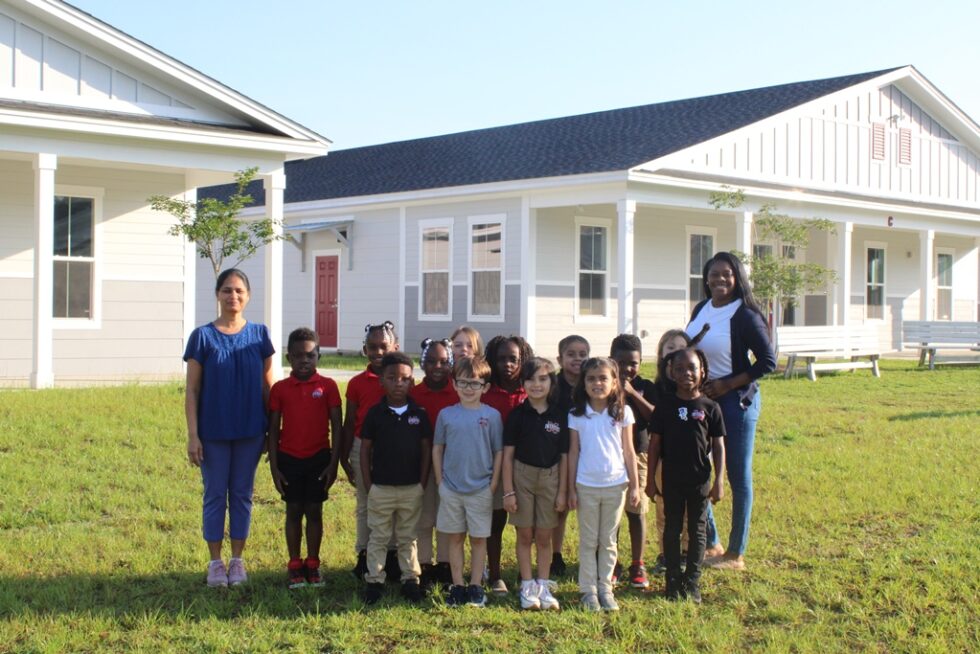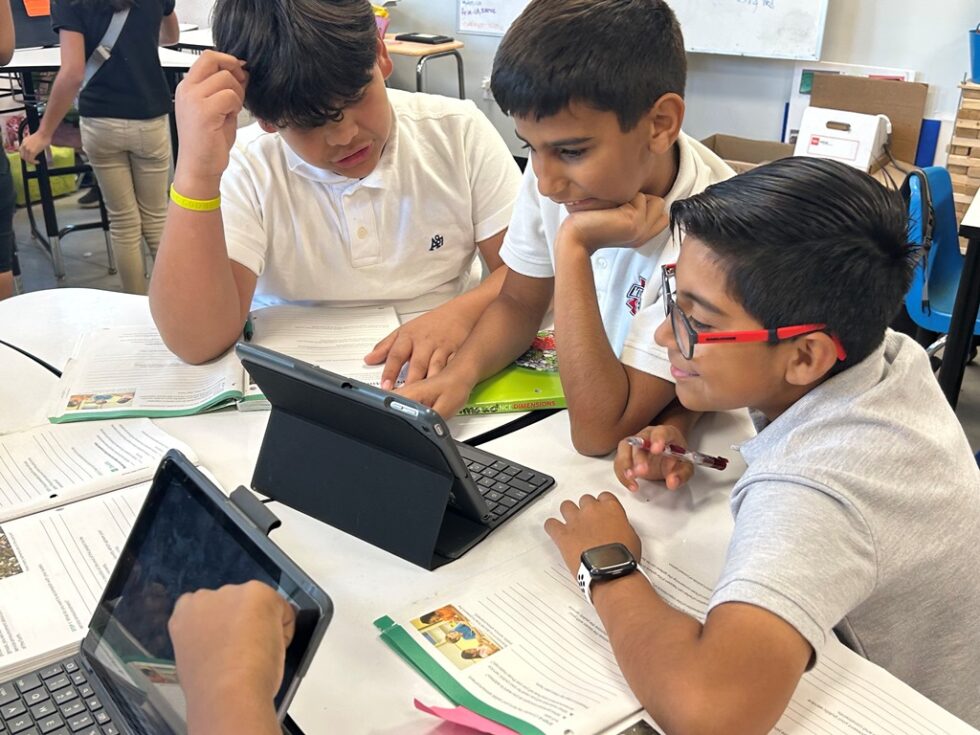lower school
2025-26 LOWER SCHOOL SUPPLY LISTS
LOWER SCHOOL ACADEMIC PROGRAMS

Robert F. Munroe offers a scoped and sequenced educational program emanating from faculty collaboration and integrating Florida’s state standards. This program, specified in curriculum guides for every nine weeks for each course, goes through review and revision at the end of each year. In relation to our school’s philosophy, the Lower School academic programs strive to incorporate the qualities of good character, leadership, and citizenship into the daily routine.
Language Arts

All units in the McGraw-Hill Wonders Language Arts program are organized around a central theme. Units combine past history with current history to show how America and its citizens have evolved. The elementary language arts program focuses on reading comprehension, oral and independent reading, vocabulary, vocabulary skills, grammar, spelling, language skills and developing the writing process. These skills are enriched through the technology component available online. Lesson skills in word structure, vocabulary, comprehension and spelling are strengthened by using the Wonders online suite of skills practice and games.
The internet is also used to assist in the inquiry process. Tools available through the curriculum include skills practice and benchmark and lesson assessments. Wonders provides teachers with a Florida Standards resource application to guide and support teachers in implementing the standards with accuracy.
The Lower School also utilizes Renaissance Learning/Accelerated Reading/STAR testing as an additional resource in reading. Accelerated Reading offers thousands of book titles for our students to read and test their comprehension. STAR testing gives teachers an accurate way to find a student’s independent and instructional reading level. Parents have immediate access to instant updates on their child’s progress and achievement and their college and career readiness. For teachers, Renaissance Reading provides data to pinpoint a student’s strengths and weaknesses.
Math
The goal of our mathematics program, McGraw-Hill My Math, is for children of all ability levels to be involved and successful in learning mathematics. The program provides an active environment in which children work, think, and communicate with each other about the mathematics they are learning. The mathematics program is a comprehensive, flexible curriculum designed to build conceptual understanding, skill proficiency, problem solving facility and logical reasoning while carefully developing concepts within and across the mathematics strands. Instruction in the specific mathematics include: number concepts and operations, geometry, measurement, fractions, decimals, percentages, graphs, algebraic thinking and data analysis.
Problem solving in a real world context is the focus of the math instruction. Instruction progresses from manipulation of concrete objects to a combination of concrete objects and pictorial representation, to pictures only and then finally to the use of discrete numbers. Students are engaged in hands-on activities to develop concepts and practice to build skill proficiency. Using interactive whiteboards students have the option of customized presentations, virtual manipulatives and step-by-step personal tutors.
Science

We strongly believe that a child is more engaged and retains more taught information when they can learn in a hands-on environment.
The Lower School elementary science lab gives our students those opportunities. The science lab is a fully functional science/computer/makerspace laboratory that encourages students to design, experiment, and build. It challenges students to think critically and offers students opportunities to collaboratively solve a problem.
This space is a continually evolving space which changes as the student’s needs change. In addition to the science lab, the Lower School uses Harcourt School Publishers which is a scaffolded science curriculum which focuses on the Life, Earth, and Physical sciences. Each lesson begins with an experiment which can be used in a variety of levels to promote inquiry based learning. The Science curriculum offers reading support workbooks used to strengthen understanding of the lessons, test vocabulary, and summarize concepts outlined in the lesson. Formal and informal chapter assessments are available. The technology component includes textbooks on DVD and online experiences of videos, animations, and activities that correlate with each lesson. The Florida State Standards are addressed in the science curriculum through higher order and reading focus skills. A variety of field trips and professional speakers enhance classroom experiences.
Social Studies
The Lower School Social Studies curriculum introduces students to basic social studies concepts of economics, behavioral sciences, geography, history and citizenship. An integrated literacy program in grades K–3 provide students with opportunities to make connections between their world and the printed word. Fourth grade provides a study of Florida history, current and past. An overview of World and American history is provided in fifth grade followed by studies of geographical sections of the United States of America. A variety of literature, technology, hands-on activities, field trips and guest speakers are used to supplement the activities.
